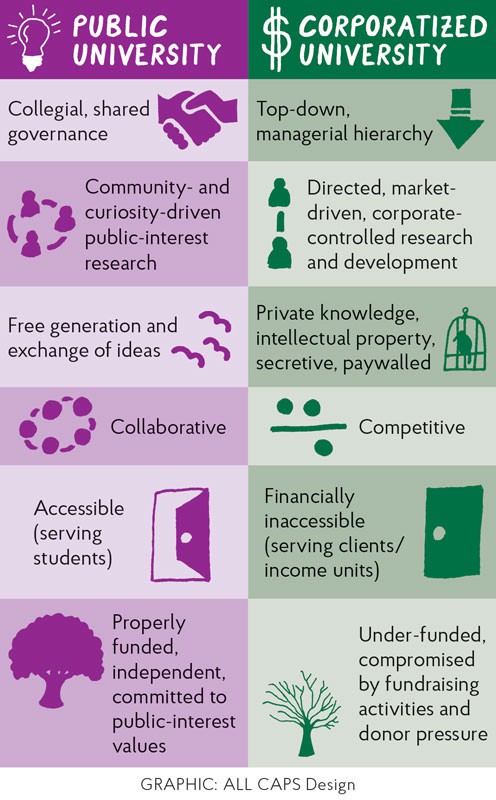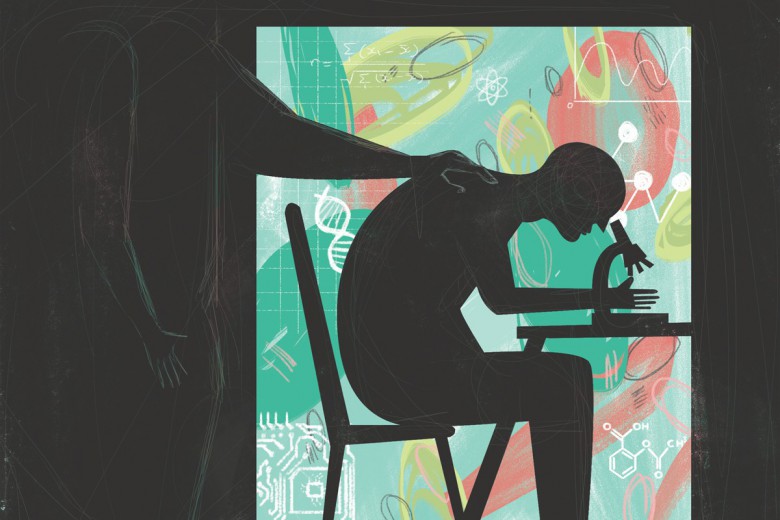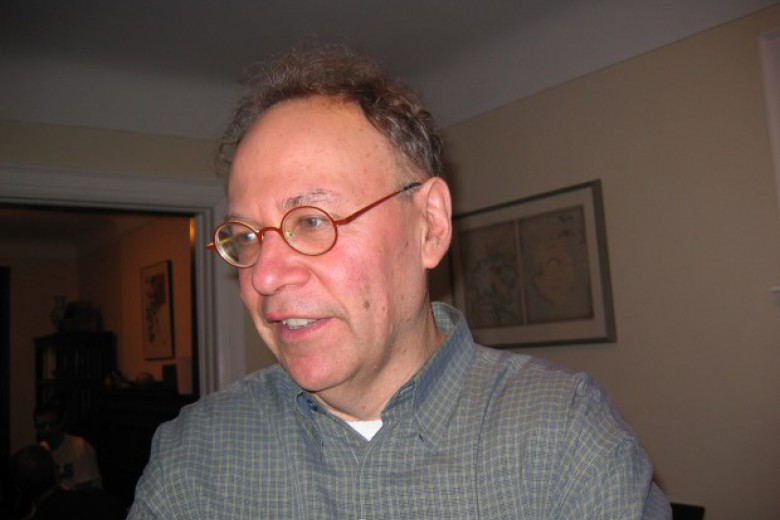
Sometimes the antagonist isn’t wielding a gun. In this kind of attack, there is no person or event that can be met head-on with a protest or a strike. There is no explosion, no great conflict, no epic battle. Such is the case with higher education’s silent killer: the slow, incremental creep of “audit culture.” Insidious “new public management” technologies first used by the Thatcher regime to weaken the public sector are restructuring post-secondary education today. This enemy has no public face but instead makes its appearance in the banal metrics of a standardized bookkeeping program.
The corporate transformation of universities has by now been well documented in books like The Corporate Campus (2000), Universities for Sale (1999), and, more recently, Free Knowledge: Confronting the Commodification of Human Discovery (2015) and A Penny for Your Thoughts: How corporatization devalues teaching, research, and public service in Canada’s universities (2015).
The capsule summary of such assessments is this: as a direct result of successive governments’ chronic underfunding of post-secondary education, the traditional university is being transformed away from an accessible institution dedicated to fostering critical, creative, and engaged citizens while generating public-interest research, to an entrepreneurial training centre churning out atomized workers and corporate-directed “R&D.”
The corporate university 2.0
Audit culture is one of the more subtle aspects of the corporatization of universities. It contributes measurement and a new rise in managerialism to market in order to complete the “3M” trifecta of a fully neoliberalized academy. These forces operate in a variety of overlapping ways to affect what types of research are permissible; they determine which scholarship is legitimized and which is delegitimized. Such pressures on research have traditionally been exerted externally via corporations, foundations, and granting agencies, but the 3M trifecta has now moved with stealth to retool the everyday operations, policies, and practices of universities from the inside.
The audit culture distorts scholars’ work by tabulating academic worth through the simplest algorithm: one that considers, for the most part, only peer-reviewed publication, journal impact rankings, and the size of research grants. Whole realms of endeavour are devalued or left out of the equation altogether, including activities such as “slow” research, alternative forms of scholarship and dissemination, devotion to teaching, or actually acting on one’s research findings – all vital aspects of the academic enterprise.
Using examples from both the American and British systems, the sociologist Michael Burawoy explains how the instrumentation of audit culture distorts university practices:
A complex incentive scheme was introduced, with the collaboration of the universities, to simulate market competition but in reality it looked more like Soviet planning. Just as the Soviet planners had to decide how to measure the output of their factories, how to develop measures of plan fulfilment, so now universities have to develop elaborate indices of output, KPIs (key performance indicators), reducing research to publications, and publications to refereed journals, and refereed journals to their impact factors. Just as Soviet planning produced absurd distortions, heating that could not be switched off, shoes that were supposed to suit everyone, tractors that were too heavy because targets were in tons, or glass that was too thick because targets were in volume, so now the monitoring of higher education is replete with parallel distortions that obstruct production (research), dissemination (publication) and transmission (teaching) of knowledge.
Meant to keep academics compliant, obedient, and domesticated, audit culture comes to Canadian universities at an otherwise exciting moment for research. Indigenous epistemologies and publicly engaged, participatory, and open forms of research are asserting their places in the academic landscape today. In response to rich debates about what constitutes knowledge, universities are being called to feature relationally and community oriented research outcomes. But with audit culture’s narrow benchmarks and retrograde understandings of what counts as real research, there is little breathing room in the academy for public engagement, community-based research, and Indigenous forms of knowing, since these methodologies can’t be easily captured in the audit forms. Indeed, academics are driven away from socially engaged scholarly activities in part because they are more difficult to measure, assess, and judge.

Take participatory action research (PAR), a research methodology rooted in community engagement, collective inquiry, and on-the-ground experimentation. Under the strict publish-or-perish injunction of audit culture, I would be channelled away from projects like producing and distributing a city survival guide and map for the homeless – which I did in response to a community call as part of a PAR project – and I would be pushed instead to write a peer-reviewed paper on homelessness (to be read by few) rather than fulfilling a need that the community itself had identified. Research becomes a question of whose needs? To whose benefit? In this case, despite being in a position through my scholarship to contribute to the community in a tangible way, I’d be channelled away from community needs toward my own career demands and the requirements of an audit culture that rewards redundant scholarship.
Or take another example: the Saskatchewan government’s recent attempt to implement a wrong-headed standardized testing regime in the school system. What parents, teachers, and policy-makers needed was to be informed about the extensive scholarly literature already available on the deleterious effects of such a testing agenda. They certainly did not require yet another academic journal article demonstrating what countless other peer-reviewed research has already established: that standardized testing makes for terrible pedagogical policy.
Rather, what would have aided policy-makers and the public, and what was lacking, was for the scholarly literature to be made accessible and presented in a variety of formats and settings, including private meetings, public talks, educational videos, op-ed pieces, and letters to the editor. As an education professor, this is how I chose to intervene, in the public realm and not with a redundant academic article. Yet audit culture drives academics away from this kind of public engagement.
In a 2010 article on academic workers, Bronwyn Davies and Peter Bansel explain the mechanisms by which audit culture coerces and constricts scholars:
“Quality assurance” seems not, then, to ensure “quality” in the academic arena. Rather, “quality assurance” as compliance with audit procedures is more likely to produce a compliant subject, one for whom possibilities for critique and creative innovation are more likely foreclosed than encouraged. Risk management then becomes, for the individual, the management of the risk to oneself of non-compliance, of non-viability within the audited policies and practices of the institution.
Within audit culture, the production of a survival guide for the homeless or a multi-pronged public intervention into bad education policy not only goes unrecognized, it is actively suppressed. As Davies and Bansel elaborate:
The practices of accountancy cannot recognise or countenance anyone who sees their job as responsibly working against the grain of dominant discourses, of asking dangerous questions of government, of opening up spaces of difference where new possibilities might emerge from the previously unthought or unknown.
It’s important to highlight that the greater one’s privilege within the academy, the better positioned one is to resist and to fight back against audit culture and its constricting assessments. The pressure to redefine and redirect one’s work is not experienced equally. The precariously employed are disproportionately affected. In fact, audit culture helps to cement the academic caste system in which only a few tenured professors enjoy the privileges of academic freedom in any meaningful way. Sessional instructors trying to get on the tenure track are the most vulnerable to audit culture’s coercive tactics, followed by those on the track, and then by tenured faculty, some of whom may have arrived at their rank by a path of least resistance. As Michael Schwalbe notes:
It is prudent – as each new cohort of graduate students discovers – to focus one’s efforts on publishing in academic journals and avoid rocking any boats … The contingent employment that awaits many of today’s graduate students … is further conservatizing. Although all faculty are supposed to enjoy academic freedom, contingent faculty whose writing or teaching causes trouble are easily dismissed. […] This precarious situation conduces to playing it safe, making no demands, and keeping students happy. Then there is the practical matter of how much research and writing one can do while trying to piece together a living by teaching four or more courses per semester, often at exploitively low wages.
Our responsibility is not academic!
Almost 50 years ago, in 1967, Noam Chomsky published an essay called “The Responsibility of Intellectuals” in which he stressed that the responsibilities of intellectuals “are much deeper” than the average person because of “the unique privileges that intellectuals enjoy.”
It is incumbent on us as scholars to resist audit culture’s false siren and get on with the wide array of scholarship our world so desperately needs. Peer-reviewed journal articles have their merits, but they do not represent the full complement of scholarly possibility. With collective spirit, we can expose and discredit this cynical game of the (accountant’s) tail wagging the dog.
As social anthropologist Cris Shore cautions, “the competitive forces encouraged by these new managerial systems … are highly seductive in recruiting our behaviour through their systems of reward and punishment.” In seeking to resist audit culture, it is crucial for us to assert our traditional right to act cohesively, as a body of scholars. Top-down systems of managerial control can only be effectively and safely contested – avoiding the potential for harmful individual penalties – if we act collectively.
The challenge is ours to take up, since we scholars are unlikely to prove our worth to society filling out forms to satisfy the surveillance requirements of the new managerialism. Indeed, as the public, governments, and even universities themselves increasingly question the need for tenure, it behooves us as academics to improve upon the manner and frequency with which we engage the public and our communities in order to teach, learn, and act collectively for a better world.
Who could fault the public’s mistrust if we appear to exist in an ivory tower, if academic freedom and tenure are only invoked in the defence of extreme cases rather than in the daily pursuit of meaningful scholarly work and critical engagement? It’s time for us to take up our responsibility with a diversity of scholarship and action, with reciprocal university-community engagement, and with a reinvigorated commitment to fight for greater access to resources and opportunities for everyone.






